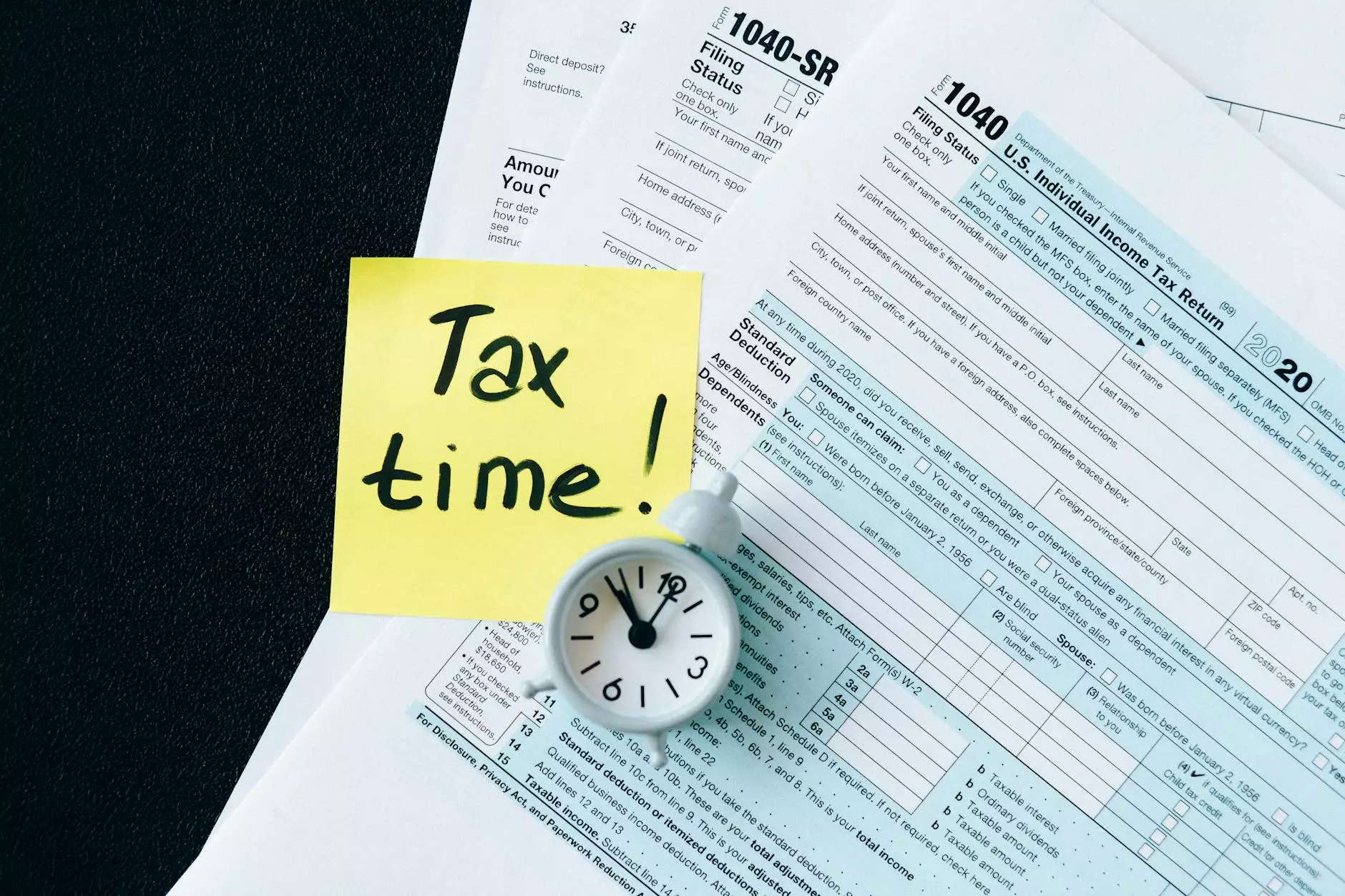The Importance of Hiring a Lawyer for Taxes: Understanding Your Obligations and Rights

In today's fast-paced business environment, tax compliance is more essential than ever. Small businesses and large corporations alike must navigate the intricate web of tax laws and regulations in order to thrive. For many entrepreneurs, this raises an important question: should you hire a lawyer for taxes? This article delves into the myriad reasons you should consider seeking professional legal counsel for your tax matters while exploring the ways in which a qualified tax attorney can aid your business success.
What is a Lawyer for Taxes?
A lawyer for taxes specializes in tax law, providing guidance and representation related to both federal and state tax issues. They understand the complexities of tax legislation, helping individuals and businesses navigate the often confusing requirements for tax compliance. Below are some key roles a tax lawyer typically fulfills:
- Advisory Services: Helping clients understand their tax obligations.
- Tax Planning: Strategizing to minimize tax liabilities and maximize savings.
- Dispute Resolution: Representing clients in disputes with tax authorities.
- Compliance Assistance: Ensuring accurate and timely compliance with tax laws.
- Educational Resources: Providing client education about tax issues.
Why Businesses Need a Lawyer for Taxes
For many businesses, having a competent lawyer for taxes on your side is not just beneficial but crucial. Here are several compelling reasons to consider:
1. Expertise in Complex Tax Laws
Tax laws can be overwhelmingly complex, often changing from year to year. A seasoned tax lawyer has the expertise to interpret these laws accurately, thus enabling them to provide sound advice tailored to your specific circumstances. They can help you understand the implications of different tax strategies, ensuring that you make informed decisions.
2. Efficient Tax Planning
Strategic tax planning can save your business significant money. A lawyer for taxes can assist in creating a tax-efficient structure for your business, considering factors such as:
- Business entity type (LLC, S-Corp, C-Corp)
- Available deductions and credits
- State-specific tax rules
Planning ahead can prevent unexpected tax liabilities down the road.
3. Navigating Audits and Disputes
When the IRS or state tax authorities come knocking, having a lawyer for taxes can make all the difference. They can represent you during audits, help you prepare for hearings, and negotiate settlements. Their expertise ensures that your rights are protected throughout the entire process, thus alleviating some of the stress often associated with tax disputes.
4. Staying Compliant
The landscape of tax law is ever-evolving, and failing to keep up with changes can lead to costly mistakes. A tax lawyer will help ensure that your business complies with current regulations, thereby avoiding penalties and fines. This compliance isn’t limited to filing; it also includes knowing what deductions can be claimed and being aware of various tax obligations that apply to your specific business activities.
5. Protecting Against Future Liabilities
Beyond immediate concerns, a lawyer for taxes can help you develop strategies that minimize potential tax liabilities in the future. This can involve setting up proper accounting practices, advising on investment decisions, or recommending business structures that offer tax advantages. Their forward-thinking approach can help safeguard your business's financial future.
How to Choose the Right Tax Lawyer
Choosing the right lawyer for taxes is critical to ensuring effective representation and advice. Here are some tips to consider when selecting a tax attorney:
- Check Credentials: Ensure that the attorney is licensed and in good standing with the bar association.
- Experience: Look for someone who specializes in tax law and has substantial experience dealing with businesses similar to yours.
- Reputation: Research reviews and testimonials from previous clients to gauge the attorney’s effectiveness.
- Communication: An effective tax lawyer should communicate complex issues clearly and be responsive to your inquiries.
- Fees: Understand their fee structure—whether they charge hourly, flat rates, or retainers—and ensure it aligns with your budget.
Tax Laws and Regulations: A Brief Overview
Tax laws are made up of various federal, state, and local regulations. Here’s a general overview:
Federal Taxes
At the federal level, taxes can include income tax, payroll taxes, excise taxes, and estate taxes. Each type varies in rates and implications for businesses.
State Taxes
Each state has its own tax regulations, including income tax, sales tax, and franchise taxes. Understanding these state-specific laws is essential for compliance and can affect your business’s bottom line significantly.
International Tax Considerations
If your business operates internationally, various international tax laws may apply, including treaties and transfer pricing regulations. A qualified lawyer for taxes can help navigate these complexities to ensure compliance and optimize your tax situation.
Common Tax Issues Businesses Face
Every business, regardless of size, faces potential tax issues that can arise at any stage. Here are some common problems:
1. Misclassification of Employees
Improperly classifying employees as independent contractors can lead to significant tax liabilities. Understanding the distinctions and ensuring correct classification is essential.
2. Not Taking Advantage of Deductions and Credits
Many businesses miss out on valuable tax credits and deductions due to a lack of awareness or understanding. A tax lawyer can ensure you claim all eligible benefits, maximizing your savings.
3. Inaccurate Record-keeping
Poor record-keeping can lead to erroneous tax filings and potential audits. It’s vital to maintain accurate and organized records throughout the year.
4. Failure to Meet Deadlines
Missing tax deadlines can result in penalties and interest charges. A tax lawyer can assist with timely filings and provide reminders of upcoming deadlines.
5. Navigating Business Structure Changes
Changing your business structure (e.g., from a sole proprietorship to an LLC) can have tax implications. Consulting a lawyer can ensure that these changes are optimized from a tax perspective.
Conclusion: The Value of a Lawyer for Taxes
In summary, hiring a lawyer for taxes is an essential step for any business wishing to thrive in today’s complex tax environment. Their expertise not only aids in fulfilling obligations but also positions your business for growth through strategic planning and compliance. From navigating audits to optimizing tax strategies, the value they offer is immeasurable. Investing in professional tax legal counsel can save you money, time, and potential legal complications in the future.
For businesses operating within the categories of Department Stores, Shopping, and Fashion, ensuring your tax practices are sound is vital to long-term success. Tax laws will inevitably affect your bottom line; therefore, partnering with a capable tax attorney can provide the peace of mind you need as you focus on growing your business.
Remember, proactive tax management is a key component of business prosperity; don’t underestimate the importance of securing a reliable lawyer for taxes.









